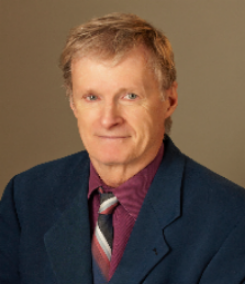|

|
SANFORD THATCHER
MARCH MEMBER OF THE MONTH
Member since 1990
|
WHY DID YOU BECOME INVOLVED IN POLITICAL SCIENCE?
As an undergraduate at Princeton in the early 1960s I was exposed to some of the best political
scientists in the business, for example, taking modern political theory from Michael Walzer when
he was just a junior professor there and having Robert Gilpin as my professor in international
relations. Although I majored in philosophy, I took a number of courses in the Politics
Department like these. Later, after I had joined Princeton University Press as a copyeditor in
1967, I had the good fortune to succeed William McClung as social science editor when he left in
1969 for a position at the University of California Press. From then until 1989 I was the
acquiring editor for books in all the subfields of political science and had the pleasure of working
with authors like Hadley Arkes, Richard Ashcraft, David Baldwin, Benjamin Barber, Larry
Bartels, Charles Beitz, Larry Berman, Jeffrey Berry, Henry Bienen, David Braybrooke, Valerie
Bunce, David and Ruth Collier, William Connolly, Larry Dodd, Jean Bethke Elshtain, Louis
Fisher, Francine Frankel, Robert Gilpin, Merilee Grindle, Amy Gutmann, Ronald Inglehart, Kent
Jennings, Robert Jervis, Miles Kahler, Stanley Kelley, Jr., Robert and Nannerl Keohane, Daniel
Levine, Abraham Lowenthal, Harvey Mansfield, David Mayhew, Cynthia McClintock, Peter
Merkl, Joel Migdal, Helen Milner, Ned Muller, Joan Nelson, Richard Niemi, John Odell, Susan
Moller Okin, Robert Packenham, Robert Pastor, Ronald Rogowski, Scott Sagan, Lars Schoultz,
Alfred Stepan, Ezra Suleiman, Dennis Thompson, Edward Tufte, Jeffrey Tulis, John Waterbury,
Myron Weiner—and well over one hundred more. Among authors whose first books I sponsored
at Princeton was Condoleezza Rice. In the twenty years that followed when i was director of
Penn State University Press I continued to acquire all books in political science from authors
who included Cynthia Arnson, Javier Corrales, Martha Crenshaw, Stephen Elkin, Richard Falk,
John Gunnell, Susan Hekman, David Lake, Steven Levitsky, Kevin Mattson, Peter Merkl, Philip
Oxhorn, Chris Sciabarra, and many, many more. Highlights of my career at Penn State included
working with Sergei Khrushchev on the publication of his father’s unabridged memoirs in three
volumes and with Bruce Berkowitz and Allan Goodman on the publication of three volumes of
the official history of the CIA. In semi-retirement I acquire books in political theory for the
University of Rochester Press and in the other three main subfields for Lynne Rienner Publishers.
WHY DID YOU JOIN APSA AND WHY DO YOU CONTINUE TO STAY INVOLVED?
Through APSA membership I was able to keep current on the latest research in political science
and keep my eye out for books being developed by faculty who published in the APSR and
Perspectives. While working at Princeton and Penn State I attended every APSA convention and
represented those presses at the book exhibit. I also participated from time to time on panels
about scholarship and publishing.
WHAT IS THE MOST CHALLENGING ASPECT OF BEING AN EDITOR IN POLITICAL SCIENCE?
The most challenging, but also the most rewarding, is helping authors get their first books,
usually based on their dissertations, published. Revised dissertations face some resistance in the
marketplace, but my experience with them is that they often end up being the most important
contributions their authors make to the advancement of scholarship.
IF YOU COULD GIVE ONE PIECE OF ADVICE TO SOMEONE IN THEIR GRADUATE/UNDERGRADUATE YEARS, WHAT WOULD IT BE AND WHY?
Follow your passion wherever it leads you, for the best kind of work you can do in your life is
work that does not feel like work at all because doing it brings you intrinsic satisfaction that just
a big paycheck cannot. I loved learning about new ideas, and a career in scholarly publishing for
me was like having a continuing free education—or, as I sometimes liked to say, being paid to be
a dilettante.
OUTSIDE OF POLITICAL SCIENCE, TELL US SOMETHING INTERESTING ABOUT YOURSELF.
Having been accepted into Stanford Law School in 1969, I ultimately decided not to go but
promised myself I would learn that area of law most relevant to publishing. So I became a selftaught
expert in copyright, testified before Congress twice, served on the board of directors of
the Copyright Clearance Center for fourteen years and on the copyright committees of the
Association of American University Presses and Association of American Publishers for over
thirty years (and continue on the AAP committee today), and have published over sixty articles
about the publishing industry and about copyright law (all freely accessible at hDps://
scholarsphere.psu.edu).
Another passion is sports, in particular swimming, which I did in college and continnue to do in
masters competition today. Along the way I helped my alma mater get a new pool built in 1990
and then wrote a 133-page history of the swimming and diving program (also available at the
aforementioned web site). I support the current coaches in their efforts to recruit top
swimmers from Texas where I live now. I also recently joined the board of directors of The
Drake Group, founded by concerned faculty in 1999 to help bring about reform in intercollegiate
athletics particularly with respect to issues of academic integrity.
